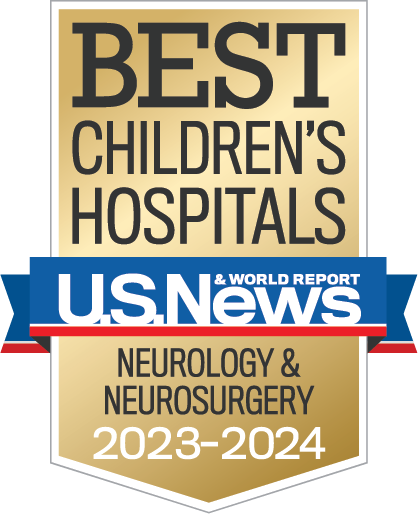- Doctors & Departments
-
Conditions & Advice
- Overview
- Conditions and Symptoms
- Symptom Checker
- Parent Resources
- The Connection Journey
- Calm A Crying Baby
- Sports Articles
- Dosage Tables
- Baby Guide
-
Your Visit
- Overview
- Prepare for Your Visit
- Your Overnight Stay
- Send a Cheer Card
- Family and Patient Resources
- Patient Cost Estimate
- Insurance and Financial Resources
- Online Bill Pay
- Medical Records
- Policies and Procedures
- We Ask Because We Care
Click to find the locations nearest youFind locations by region
See all locations -
Community
- Overview
- Addressing the Youth Mental Health Crisis
- Calendar of Events
- Child Health Advocacy
- Community Health
- Community Partners
- Corporate Relations
- Global Health
- Patient Advocacy
- Patient Stories
- Pediatric Affiliations
- Support Children’s Colorado
- Specialty Outreach Clinics
Your Support Matters
Upcoming Events
Colorado Hospitals Substance Exposed Newborn Quality Improvement Collaborative CHoSEN Conference (Hybrid)
Monday, April 29, 2024The CHoSEN Collaborative is an effort to increase consistency in...
-
Research & Innovation
- Overview
- Pediatric Clinical Trials
- Q: Pediatric Health Advances
- Discoveries and Milestones
- Training and Internships
- Academic Affiliation
- Investigator Resources
- Funding Opportunities
- Center For Innovation
- Support Our Research
- Research Areas

It starts with a Q:
For the latest cutting-edge research, innovative collaborations and remarkable discoveries in child health, read stories from across all our areas of study in Q: Advances and Answers in Pediatric Health.


Epilepsy Program
Epilepsy and Seizures in Children
We treat kids like they should be treated: like kids. That’s why we designed our hospital just for them.

What is a seizure in a child?
A seizure is caused by a brief, strong surge of extra electrical activity between the cells in the brain. This activity causes physical or behavioral changes, which range from intense full body shaking to mild staring and lip smacking.
What is epilepsy in children?
Epilepsy is the name of the chronic medical condition in which a child has repeated seizures. It's also called a seizure disorder. When a child has two or more seizures that are not the result of another medical condition, they are considered to have epilepsy. There are many types of epilepsy, ranging from benign to intense.
What causes epilepsy in children?
There are many causes of epilepsy, including:
- Genetic or metabolic disorders present at birth
- Infections such as meningitis and encephalitis
- Trauma or brain injury
- Brain abnormality
- Drug use or drug withdrawal
- Metabolic levels, including low glucose and calcium and high ammonia and lactate
- Stroke
Who gets epilepsy?
- There are more than three million people in the United States with epilepsy; most of them are children and elderly people, and more than 200,000 new cases of epilepsy are diagnosed each year.
- New cases of epilepsy are most common among children, especially during the first year of life.
- The basic, underlying risk of developing epilepsy is about 1%.
- Individuals in certain populations are at higher risk. For example, it is estimated that epilepsy can be expected to develop in:
- 25.8% of children with intellectual disability
- 13% of children with cerebral palsy
- 50% of children with cerebral palsy and intellectual disability
What are the signs and symptoms of a seizure in a child?
The symptoms of a seizure depend on the location of electrical activity in the brain. Symptoms can vary in intensity and may be subtle (like staring into space) or intense (such as full body shaking).
Types of generalized seizures
During a generalized seizure, the surge of electrical activity affects the whole brain.
There are several types of generalized seizures in children, including:
- Generalized tonic-clonic seizure (also called a "grand mal" seizure): During this type of seizure, a child may suddenly lose consciousness, fall to the floor (if standing) and stiffen. The child's arms and legs will shake. The child may turn blue or pale, bite the tongue or urinate. This type of seizure usually lasts 1 to 5 minutes. Often the child will be sleepy after the seizure and wants to rest.
- Absence seizure (also called a "petite mal" seizure): A child will stare with a glazed look, often accompanied by blinking, chewing and facial twitching. During this type of seizure, the child does not realize what is happening. When the seizure ends, the child is immediately alert. These seizures typically only last for a few seconds and may happen several times throughout the day.
- Myoclonic seizures are characterized by sudden jerks of muscle groups. During this type of seizure, one or more part of the body jerks suddenly and briefly.
- Atonic seizures cause the muscles of the body go limp, and the child is at a high risk for falling. These are sometimes called "drop attacks."
Types of partial seizures
Partial seizures in children are caused by excess electrical activity in just one part of the brain. The electrical activity may stay in one area or travel to other areas of the child’s brain.
- A simple partial seizure varies from child to child. It can involve movement (jerking one part of the body), abnormal sensation or a premonition called an "aura" where the child can sense that a seizure is coming. The area of the body affected depends on what part of the brain is affected. During simple partial seizures, the child always stays alert and aware.
- A complex partial seizure (psychomotor/temporal lobe) may look similar to a simple partial seizure but will always involve loss of awareness. The child may have a simple partial seizure (starting in just one part of the brain) that spreads to a different area of the brain and causes a loss of awareness. You may see the child lip smacking, picking at clothes, wandering, making chewing motions or it may suddenly become hard to understand the child's speech. Both types of partial seizures last only for a few minutes.
What are the signs and symptoms of epilepsy in children?
Epilepsy is a medical condition that produces seizures in children. Epilepsy is defined as two or more seizures that cannot be traced to another brain event like a concussion or an extremely high fever. The two seizures are usually separated in time by 24 hours.
What tests are used to diagnose epilepsy in children?
Our Neuroscience Institute has a variety of high-tech evaluations to test and diagnose epilepsy in kids. Tests include long-term video electroencephalogram (EEG) monitoring, intraoperative EEG monitoring, neuroimaging, brain mapping and in-depth neuropsychological testing.
We also have state-of-the-art equipment used for determining where the seizures start in the brain; this is often used to prepare children with difficult-to-treat epilepsy for epilepsy surgery. We offer a variety of imaging services and will work with you to determine the best testing for your child.
When do doctors diagnose epilepsy?
Usually, a child is diagnosed with epilepsy after two or more seizures separated by 24 hours that are not related to a high fever, concussion or other event.
How is epilepsy in a child treated?
We provide different types of treatment for epilepsy in children including traditional anticonvulsant medications, dietary therapies, access to ongoing drug studies, vagal nerve stimulation (an epilepsy therapy designed to prevent seizures by sending regular, mild pulses of electrical energy to the brain) and epilepsy surgery.
Most children with epilepsy are able to control their seizures with medications:
- 60% of children with epilepsy respond well to their first medication.
- 10% will have seizures treated by their second or third medicine.
- 30% will have intractable seizures, or those that are difficult to control with medication alone. For children who have epilepsy that is very localized or difficult to treat, surgery may be an option.
Rescue medications
Rescue medications are sometimes given for the family to use at home for epileptic seizures that occurs despite the use of medication that has otherwise successfully prevented seizures in the patient previously. These medications can include midazolam nasal spray or a rectal suppository such as Diastat.
Watch this video for step-by-step directions on how to administer intranasal midazolam if it has been prescribed by your provider.
The Epilepsy Program at Children's Colorado
If surgery is needed, our Epilepsy Program provides the only comprehensive treatment program for chronic seizure disorders in the region. Brain Lab® image-guidance surgery allows our neurosurgeons to perform complex brain operations with virtual visualization of the critical brain structures and the location of seizure onset.
Our pediatric neurosurgeons use state-of-the-art laser technology to target deep brain lesions through very small openings. Our surgeons also use robotics to precisely place electrodes that can localize a hard to find seizure onset zone.
Our epilepsy surgery team also has pediatric experts from various specialties to help care for every part of a child's brain before, during and after surgery.
Why choose Children's Colorado for treatment of your child's epilepsy?
Experts at our Epilepsy Program provide comprehensive care for babies, kids and young adults who suffer from seizures and epilepsy. Our patients range from children who have just experienced their first seizure, to those suffering from chronic and debilitating epilepsy.
We offer state-of-the-art treatment and evaluation by a multidisciplinary team consisting of neurosurgeons, neuropsychologists, social workers, nurses, dietitians and epileptologists (doctors who specialize in the treatment of epilepsy) who are all trained in pediatric epilepsy. We're also closely affiliated with local organizations and epilepsy resources to meet the needs of our patients.
Contact our Epilepsy Program
For more information about the Epilepsy Program, please contact us at 720-777-6895.
- Learn about our multidisciplinary Epilepsy Program. We care for babies, kids and young adults, ranging from those who have just experienced their first seizure to those suffering from chronic and debilitating epilepsy.
- Check out our seizure safety precautions for parents of children with epilepsy to learn how to help keep your child safe at home and away from home.
- Epilepsy.com is a resource for medical information about epilepsy and its treatments. The website is sponsored by the Epilepsy Foundation, an advocacy group for people with epilepsy.
- Seizure Tracker provides a way to track seizures in children using online tools and a smart phone app.
- The Centers for Disease Control has information on seizures and seizure disorders in children.
- The Epilepsy Foundation also provides information to help school professionals and other caregivers learn about working with children with epilepsy.
Next steps
-
Would you like to learn more about us?
Learn more about the Epilepsy Program -
Do you have questions about your child’s condition?
720-777-6895 -
Are you ready to schedule an appointment?
Schedule an appointment

Compassionate care, wherever you are
We’re here when you need us. Telehealth appointments are available across every specialty, so you can get the high-quality care we’ve always offered from the comfort, privacy and convenience of home.
See if telehealth is right for you
Get to know our pediatric experts.

Patrick Romani, PhD
Patient ratings and reviews are not available Why?


Anastacia Wall, PA-C
Physician Assistant




 720-777-0123
720-777-0123






